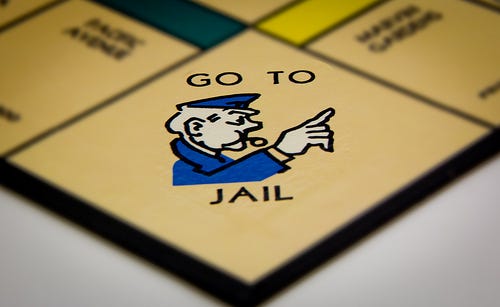Last week the Supreme Court of India, in Aneeta Hada vs M/S Godfather Travels (via @legallyindia) decided the Special Leave Petition filed by Avnish Bajaj, for quashing a criminal case against him relating to a pornographic MMS posted for sale on the Baazee website, of which he was the CEO at the time. The origin of the case is an order by the Metropolitan Magistrate dated 14th February 2006 which took cognizance of offences under Sections 292 and 294 of the IPC and Section 67 of the IT Act.

The High Court Decision
Avnish Bajaj to quash the proceedings had originally approached the Delhi High Court. His petition was partly allowed by the High Court, which quashed proceedings under Sections 262 and 264 of the IPC however maintained the charges under Sec. 67 readwith Sec. 81 of the IT Act.
The Delhi High Court reasoned that the IPC does not recognise the concept of automatic criminal liability attaching to the director where the company is not made an accused. The Court noted that not even a prima facie case for the offences under Sections 292/294 of the IPC was made out against Avnish Bajaj, with the charge sheet only seeking to implicate him in his designation as MD of Bazee and not in his individual capacity.
However, with regard to Sec. 67 which contains the substantive offense for publishing pornography, the Court reasoned that since it had a deeming provision for corporate liability under Sec. 81, the trial with regard to this charge could proceed.
It categorically noted that:
“(e) A prima facie case for the offence under Section 67 read with Section 85 IT Act is made out against the petitioner since the law as explained by the decisions of the Supreme Court recognises the deemed criminal liability of the directors even where the company is not arraigned as an accused and particularly since it is possible that BIPL (EIPL) may be hereafter summoned to face trial.”
Appeal to the Supreme Court
As it turns out BIPL (Bazee Internet Private Limited), which is the company who owned Bazee.com before it was transferred to eBay was never arraigned as an accused. Hence, the limited issue which the appeal in the Supreme Court came to be concerned with is the finding of the High Court on deemed criminal liability. Put another way the question which was posed in the Case was, whether an official of a company can be made an accused without the company itself being made an accused.
In reaching its decision the Supreme Court first studied previous holdings in C.V. Parekh, Anil Hada, Sherotaan Aggarwal. It noted that the holdings in Anil Hada and Sherotaan Aggarwal could not be sustained as they were 2 bench judgments and were contrary to the purport of C.V. Parekh which is a 3 bench judgement. In a sense the court noted both of them as per incuriam.
Then the Court held that the 3 bench judgment in C.V. Parekh is the correct proposition of law inasmuch when the principal offence has been alleged against a company and it is not made an accused then the directors and the employees to whom the vicarious liability cannot be tried. Interestingly much of the analysis of the court was based on interpretation of Secs. 141 and 142 of the Negotiable Instruments Act, which is then supplanted to Sec. 81 of the IT Act.This was possible because these provisions were similarly worded, or as lawyers like to call it mutatis mutandis.
Some Thoughts
Firstly, why was no cross appeal filed by the Government against the Order of the High Court under which the prosecution under secs. 262/264 of the Indian Penal Code was quashed ? Certainly there does not seem to be any good reason for not appealing the decision given how enthusiastically and without any inhibitions of propriety the State locked up the petitioner in jail.
Also, the verdict wherein it omits a discussion of Sec. 67 of the IT Act or Sec. 79 which deals with intermediary liability comes as a disappointment for many who would have wanted clarity on intermediary liability. This is given that the Avnish Bajaj was the first high profile case on intermediary law before the Supreme Court. However, seeing at how the case was decided by the High Court, the grounds of challenge before the Supreme Court would understandably and fairly be limited.
In my view this case would have a limited impact on the Vinay Rai-Google/FB High Court litigation. This is because I anticipate that the companies themself have been made an accussed. If not then the holding in this case should in all likelyhood may assist the quashing petitions filed by Google and Facebook.
While we are discussing the Vinay Rai case, there is one more case pending in the Supreme Court which in my view should ivolve a study of intermediary liability. The case titled as Google India Pvt. Ltd., vs M/S.Visaka Industries Limited, involves a high court refusing to quash charges against Google. I have previously blogged about this here.
Whatever be said, given the amount of litigation on intermediary liability its only a matter of time before we have some authoritative pronouncements on the subject.